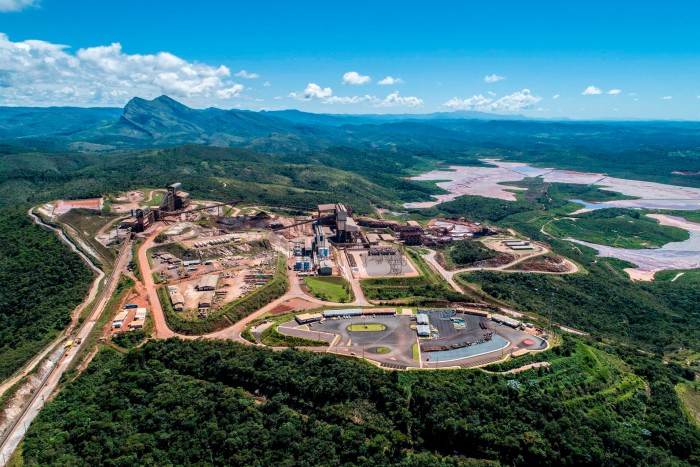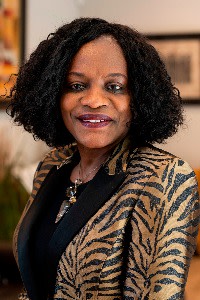Geopolitical upheaval recasts chief legal officer role

Roula Khalaf, Editor of the FT, selects her favourite stories in this weekly newsletter.
A multinational mining company following the lead of a non-profit group may seem an unlikely scenario, but Anglo American is aiming to do just that.
Richard Price, group general counsel for Anglo American — which mines resources from platinum to iron ore in mainly developing countries — is spearheading an initiative to create a database akin to the “Rule Of Law Index” that has been published each year since 2009 by the Word Justice Project.
Price says that, by creating its own integrated country-risk dashboard, the London-listed miner, which employs 62,000 people worldwide, aims to give its executives “visibility” on risk. It will identify “indications that something is happening that we have to pay attention to, even though it has no impact on our business directly”.

The project comes as Anglo American makes its operations increasingly more digital and as corporate legal leaders seek out new tools and resources to help them adapt to the changing demands on their role. As companies manage the impact of geopolitical and economic events — from war in Ukraine to soaring global inflation — in-house lawyers’ mandates have expanded beyond solely advising bosses on legal issues related to business strategy.
“There’s much more on the GC’s agenda in today’s more febrile world,” says Price.
John Blood, chief legal and corporate officer at multinational brewer Anheuser-Busch InBev, agrees. “Traditionally, the in-house counsel role has always been about being a business enabler and also thinking about risk,” he says. “But the type of risk has changed, and the skill set necessary to navigate the risks has changed.”
Law schools “don’t teach” about geopolitical risk, Blood adds. “But that’s something the business is asking you to navigate.”
Against this backdrop, in-house lawyers are turning to new sources of expertise to help them understand, evaluate, and manage risk in a more precarious world. Lucy Fato, the general counsel for US insurance company AIG, in 2020, for instance, brought the in-house government relations unit under her wing.
At the same time, externally, general counsel are appointing highly specialised law firms and consultancies, such as Covington & Burling — where former US ambassador to the EU Stuart Eizenstat leads the international practice — or UK-based strategic advice firm Hakluyt.

Databases, preferably those powered by artificial intelligence, and dashboards, such as the one Price envisions, are playing an ever increasing role.
The aim of his planned tool, says Price, is to give the board “a complete picture of where risks might lie or be evolving as a key input into capital allocation decisions”. Anglo American’s projects rarely generate a return on investment before 10 years, so a 30- to 40-year horizon makes sense. The dashboard will report both leading and lagging indicators.
“An erosion of the rule of law, perhaps through greater political interference, potentially gives rise to less regulatory certainty, less security of tenure — which is hugely important to us — less certainty around legal outcomes, a potentially deteriorating security situation, heightened criminality, and corruption,” he explains.
The WJP index, initially launched by the American Bar Association, ranks 140 countries and jurisdictions on eight factors: constraints on government powers, absence of corruption, open government, fundamental rights, order and security, regulatory enforcement, and civil and criminal justice. The WJP noted in its 2022 report that more countries declined than improved in those areas for the second consecutive year.
But Anglo’s dashboard would be customised to identify all sources of potential volatility in countries where it operates.

AB InBev, the world’s largest brewer, employs roughly 167,000 people in roughly 70 different countries. The Belgium-based group has operated in China since the 1980s, with its largest brewery in the country located in Wuhan. Blood says the challenges thrown up by the outbreak of Covid-19 prompted him to look beyond AB InBev’s usual roster of external law firms, which he says do not necessarily have the expertise needed to address emerging problems.
He uses the few international law firms and consultancies whose advisers include former ambassadors, EU or UN officials, and who can answer his questions. Blood also employs academics, who he says offer the “best insights” since they typically value their intellectual integrity and independence enough to speak truth to power.
AB InBev employed academics, including graduate students at Rutgers University, to help construct algorithms for a tool that could alert real-time concerns about potentially corrupt activities linked to its global sales force.
Blood says the tool allows the brewer to continuously audit record-keeping practices across the company and has a 90 per cent accuracy rate in identifying situations where human intervention is warranted. AB InBev spent several million dollars to develop the system, he says, adding that “it has paid back many times over in savings” including through reductions in external legal costs.
Academics are “super straightforward”, Blood adds, “they just tell you what the data says” and do not shape it for their own stake in the business.
Still, he cautions, in-house lawyers must “know [their] business well enough to do that translation or the application of those insights” themselves.
For Rhoda Weeks-Brown, general counsel and director of the IMF’s legal department, assessing risk around problems related to geopolitics or climate change is bringing in-house lawyers closer to a space “that we’ve always been in” at the global lender.
The IMF legal department has long had a mandate to evaluate risk on a macro scale as the fund — established in 1944 to build international economic co-operation — is in the business of lending to member countries.

“Economic success often is no longer only about having good monetary and fiscal policies and a good financial sector,” she says. “It’s also about legal and institutional reforms in many countries where, if you have that missing, you’re not going to have stable macroeconomics or sustainable growth.”
Weeks-Brown welcomes corporate legal leaders tapping the same sources for stability that the IMF has long stressed, but warns they should not expect to “show up one day” and expect to fix things overnight.
“It’s a long game,” she says. “It requires investment and it requires understanding local conditions and context.”

Comments